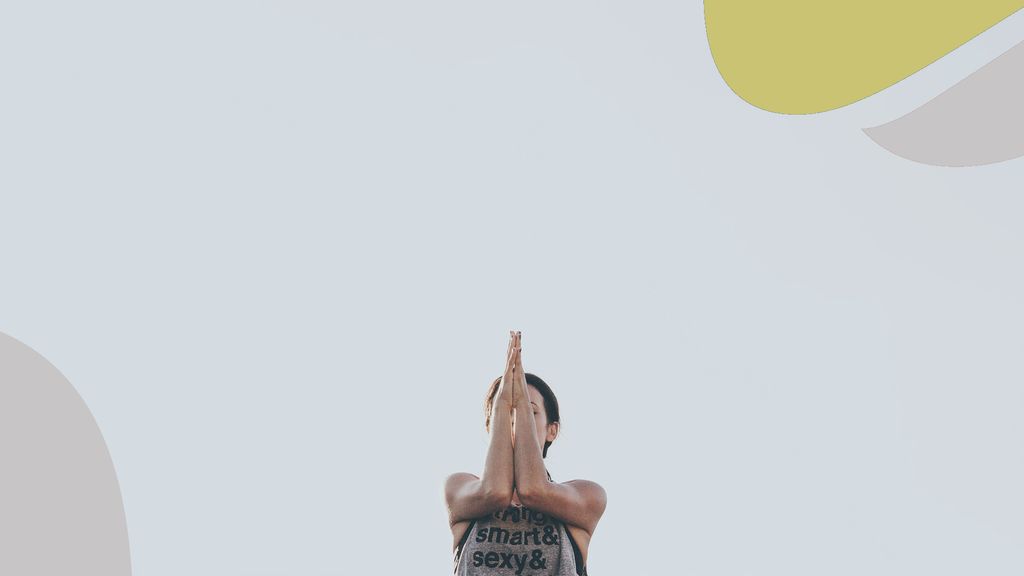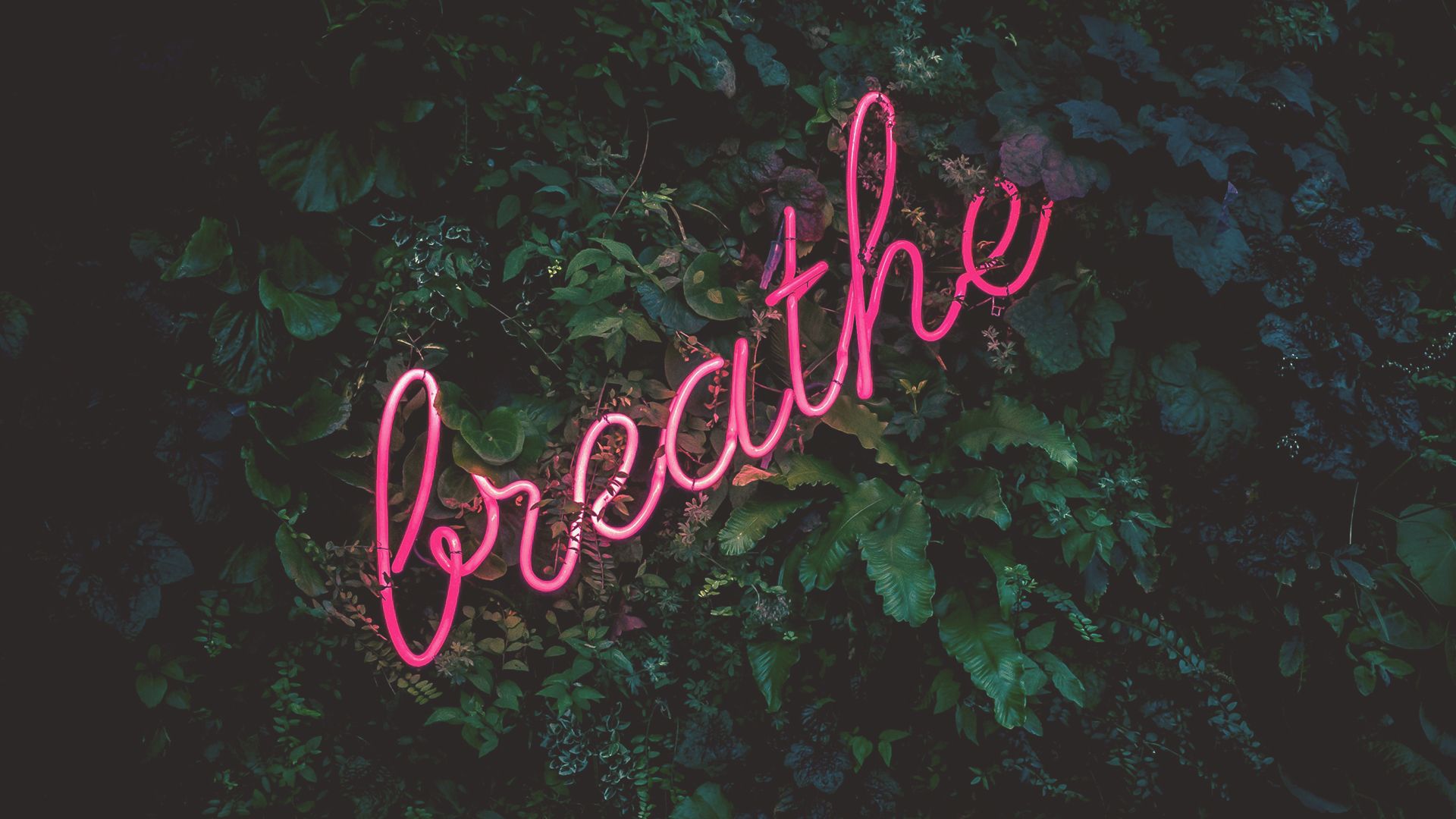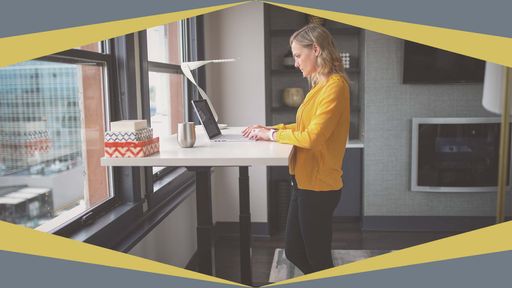Simple, Effective Grounding Practices for Remote Workers

by Nathan Allen

This is an anxiety-provoking time. The coronavirus pandemic is unlike anything any of us has experienced, and it has led to increased stress for many. But data show that even before the outbreak, remote workers were more susceptible to work-related anxieties. Sure, it’s nice to skip a soul-crushing commute, but a 2017 European Foundation study found that remote workers generally feel more stress than do office workers. Specifically, slightly more than 30 percent of home-based workers reported feeling stress “always” or “most of the time” while working, compared with less than 25 percent of office workers. About 42 percent of home-based workers reported waking up repeatedly in the night because of stress at least a few times a month, whereas just 28 percent of office-based workers made the same claim.
A more recent ZenBusiness study also found that workers who are remote all the time are more susceptible to work-related anxiety than are office workers and those splitting their time between working remotely and working in an office.
That said, with less time spent commuting and generally more time spent at home, you have more time to engage in practices that are beneficial to your well-being. To help you reduce anxiety and stress during the pandemic and beyond, we’ve come up with a few simple tips and strategies that you can easily build into your daily or weekly routine.
Your Brain on Endorphins
Before you start with the eye rolls, try it. Kinesiology research, as well as experts in the field, recommend daily aerobic exercise as a way to reduce anxiety. In fact, you can reap science-backed benefits from just five minutes of aerobic exercise each day.
First, let’s be clear about the difference between exercise and physical activity. The Mayo Clinic says physical activity is “any activity that works your muscles and requires energy,” which could be house or yard work—or, technically, a robust round of Fortnite. Exercise, on the other hand, is planned and structured repetitive movement meant to maintain or improve physical fitness.
Exercise (sorry, MMOG fans) reduces anxiety and has both in-the-moment and long-term benefits for mental health. In the moment, exercise releases endorphins and other natural chemicals that boost feelings of well-being. It can also break the spiral of repetitive negative or anxious thoughts. Long-term, relying on exercise as a coping mechanism can boost confidence and become a healthy habit—much better than depending on superficial coping mechanisms (overeating, compulsive shopping) or on substances (which temporarily alter brain chemistry but don’t provide health benefits).
The best thing about exercise: It’s free! And it doesn’t take much time or commitment to see some changes. At least 30 minutes of walking, jogging, or biking three to five times a week can significantly reduce depression and anxiety. But even 10 to 15 minutes a day can also help. Try this four-minute workout for starters. Or this five-minute one. It’s important to find what’s most enjoyable and realistic for you.
Note: Before you begin, seek a health professional’s advice about the length of time and frequency of activity that is appropriate for you.
Breathe In, Breathe Out

Breathwork is another impactful, quick, and easy way to manage daily anxiety. And, like exercising, it’s free and can be practiced anywhere. Deep breathing helps reduce anxiety and stress by increasing the flow of oxygen to the brain and stimulating the parasympathetic nervous system, which invokes a state of calm.
The University of Michigan’s School of Medicine has a helpful guide for trying some different breathing practices. One technique is belly breathing, which is simply taking deep breaths into your belly. Put one hand on your stomach, breathe in deeply through your nose—feeling your hand rise with your belly—and then breathe out slowly through your mouth. Repeat 3 to 10 times.
Another technique is boxed breathing. Breathe in for a count of four, hold for a count of four, breathe out for a count of four, and rest for a count of four. Repeat the “box” a few times. As with exercise, turning this practice into a daily routine provides the most benefits. This video is a good place to start.
Find Your Om
If you’re going to try some breathing exercises, you might as well take the next step and practice meditation. We like meditation for the same reason we like exercise and breathing practices: It’s free, it can be done anywhere, and it quickly proves beneficial. Just five minutes of daily meditation can help reduce stress and anxiety while creating another healthy coping strategy for your antistress tool kit.
Research shows mindfulness meditation actually changes prefrontal brain activation tied to anxiety. Those who are unfamiliar with meditation often view it as simply sitting and doing nothing—a waste of time. But meditation is actually a way of training your brain like a muscle.
As with exercise, it’s good to plan our your meditation time. There are plenty of apps—like Calm or Headspace—to help with just that. One of my favorite free, daily, guided-meditation sources right now is The Daily Shine podcast, which you can find wherever you get your podcasts.
Mozart over Benzos
A recent study led by University of Pennsylvania researchers found that “music medicine” can be just as effective for calming anxiety as taking a benzodiazepine. Researchers have also found that relaxing music can lower brain cortisol levels faster after a stress-inducing event.
Of course, different music is relaxing for different people. Spend a bit of time finding either music or relaxing sounds (ocean waves, anyone?) that work best for you, create a playlist, and then have it ready to play during a particularly stressful workday.
Prioritize Social Connections
Yes, social anxiety is a thing. But making social connections doesn’t mean daily appearances at huge parties (especially during a pandemic) or speaking in front of hundreds of people. Instead, we’re talking about maintaining valuable social connections with your people.
Remote workers struggle with loneliness more than office workers do. Having meaningful social connections not only helps decrease loneliness but also boosts feelings of well-being, self-value, and cognitive skills.
The pandemic has taught us the value of technology in maintaining connections. Set up regular Zoom or Skype calls with family or friends. Invite a few friends over for a socially-distanced meal or hangout time. Combine exercise and social connections by inviting a friend or family member on a masked or socially-distanced walk or hike.
Let It Go
Although trying to control all the details of your life is an attempt to decrease anxiety and stress, it actually increases them. One skill you can gain through mindfulness meditation is learning to accept your current emotions, feelings, and thoughts, rather than trying to control or negate them. Experiencing anxiety is normal—even when there's no pandemic going on—and doesn’t mean anything is wrong with you. With some of the practices noted above, you can train your brain to look at that anxiety from an objective distance, and then let it be and let it go.
The above techniques are meant to be an introduction to—or reminder of—ways to ground yourself. And you can use many of these techniques in a remote work or team setting—sometimes even more so than you can in an office. Create a calming music Slack thread, for example, where you and your remote coworkers share music and sounds that decrease feelings of stress. Schedule a daily time to meet and meditate, or do a quick workout together. Build your social connections by scheduling weekly or daily check-ins and social events. Consistency is crucial, so be sure to show up for yourself regularly. Use this article as a starting point to learn what practices and techniques work best for you.









